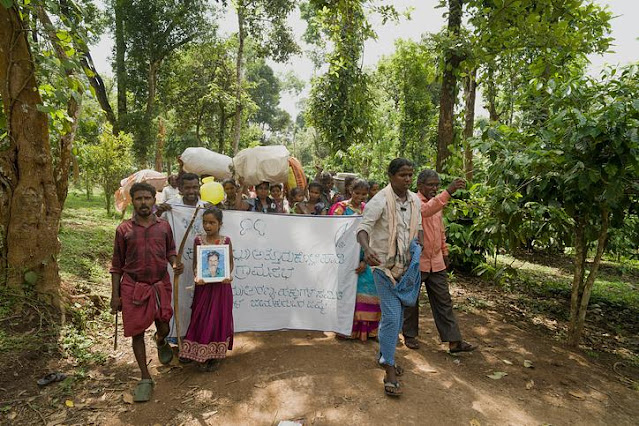In 2025, the Jenu Kuruba tribe made headlines by returning to their ancestral village in the Nagarhole Tiger Reserve, Karnataka. Over 50 families, evicted 40 years ago, are rebuilding their homes, asserting their Indigenous rights. Driven by a spiritual connection to the land, this move is a significant current affairs topic for competitive exams like UPSC, SSC, and Banking.
Who Are the Jenu Kuruba?
A Particularly Vulnerable Tribal Group
The Jenu Kuruba are a Particularly Vulnerable Tribal Group (PVTG) residing in Kodagu and Mysore, Karnataka. Their name, derived from the Kannada word jenu (honey), reflects their traditional livelihood of honey collection, foraging, and forest-based activities. Living in small hamlets called Hadi, they are also known as Then Kurumba and Kattu Naikar.
Social and Cultural Structure
Unique Community Organization
The Jenu Kuruba lead a semi-nomadic lifestyle, free from external authorities. Their society is led by a Yajamana (leader) and a Gudda (ritual head), handling all community matters internally, except religious ones. Their belief system centers on supernatural beings, and their folk songs and dances celebrate farming, weddings, and spiritual traditions.
History of Evictions
Impact of Fortress Conservation
For decades, Indigenous communities in India, including the Jenu Kuruba, faced forced evictions due to government policies prioritizing conservation and tourism. This approach, known as Fortress Conservation, displaced thousands, severing the Jenu Kuruba’s deep connection to their forest homeland.
Spiritual Motivation for Return
Sacred Connection to the Forest
The Jenu Kuruba’s return is driven by their spiritual beliefs, viewing the forest and its wildlife, including tigers, as sacred. They believe abandoning their ancestral land angered their deities, motivating their efforts to reclaim their homes and revive their traditional lifestyle.
Resilience Against Opposition
Community Advocacy
Despite threats from forest officials and police, the Jenu Kuruba have shown remarkable resilience. Young leaders like Shivu are advocating for their ancestral land and challenging conservation models that exclude Indigenous people. Their resistance highlights the ongoing struggle for Indigenous rights and justice.
Environmental Stewardship
Supporting Conservation
The Jenu Kuruba are skilled environmental stewards, with traditional practices that support forest health and wildlife. Studies show tigers thrive in areas with Indigenous presence. Their return to Nagarhole Tiger Reserve could enhance conservation efforts, proving that Indigenous rights and conservation can coexist.
Future of Indigenous Rights
A Potential Precedent
The Jenu Kuruba’s successful return may inspire other Indigenous communities in India. It raises questions about conservation policies and the need for a balanced approach. The intersection of Indigenous rights and environmental conservation remains a critical issue for India’s future.
Relevance for Competitive Exams
Study Resource for Aspirants
The Jenu Kuruba’s return to Nagarhole is a vital current affairs topic for competitive exams. Topics like Indigenous rights, tribal communities, and conservation policies are frequently tested in exams like IAS, IBPS, and RRB. Stay updated with GKboard.in for concise, exam-focused current affairs content.
